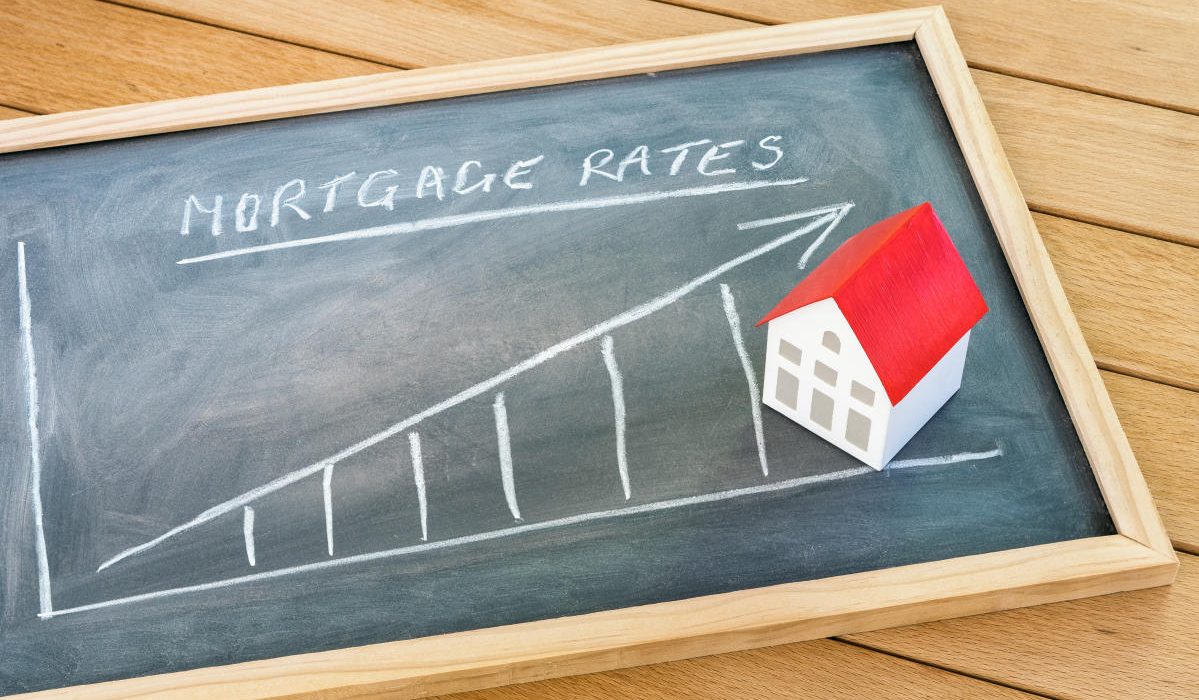Mortgage rates on 30-year terms continue their climb back to nearly 7.0% as of Friday, March 22, 2024, in the wake of the Federal Reserve’s hold on the benchmark interest rates. The Fed concluded its most recent meeting this week by holding the federal funds target interest rate at 5.25% to 5.50%, the fifth consecutive time it’s kept rates steady since July 2023.
The current average rate for a 30-year purchase is 6.99% — up 13 basis points from this time last week. For a 30-year refinance, the average rate increased to 7.02% over the week, reflecting an increase of 17 basis points.
Rates for a 15-year mortgage are also on the rise — up 6 basis points for purchase to 6.46% and up 2 basis points for refinance to 6.48% week over week. The average purchase rate on a 30-year fixed jumbo mortgage is 7.05%.
Purchase rates for Friday, March 22, 2024
-
30-year fixed rate — 6.99%
-
20-year fixed rate — 6.87%
-
15-year fixed rate — 6.46%
-
10-year fixed rate — 6.36%
-
5/1 adjustable rate mortgage — 6.36%
-
30-year fixed FHA rate — 6.94%
-
30-year fixed VA rate — 7.15%
-
30-year fixed jumbo rate — 7.05%
Refinance rates for Friday, March 22, 2024
-
30-year fixed rate — 7.02%
-
20-year fixed rate — 6.92%
-
15-year fixed rate — 6.48%
-
10-year fixed rate — 6.39%
-
5/1 adjustable rate mortgage — 6.27%
-
30-year fixed FHA rate — 6.93%
-
30-year fixed VA rate — 7.61%
-
30-year fixed jumbo rate — 7.04%
Current mortgage rates for March 22, 2024
The Fed rate does not determine mortgage rates, though it sets benchmarks that indirectly affect rates on financial products like mortgages, personal loans and deposit accounts. The Fed has a firm goal of a 2% inflation rate, and with favorable economic reports on the job market, it’s unlikely the reserve will cut rates until that goal is within reality’s reach.
Mortgage rates in the news
The Federal Reserve concluded its most recent meeting on March 20, 2024, by announcing it’s leaving the federal funds target interest rate at 5.25% to 5.50% unchanged, marking the fifth consecutive time it’s held rates steady since July 2023. Policymakers projected cuts to 4.6% by the end of 2024 after December’s Federal Open Market Committee meeting. However, in a statement yesterday, the committee reiterated earlier concerns about cutting this key interest rate until the Fed has “gained greater confidence that inflation is moving sustainably toward 2 percent.”
The Federal Reserve increased the target interest rate 11 times from March 2022 to July 2023 in an effort to combat the highest inflation in four decades coming out of the pandemic. Yet while inflation has cooled, Consumer Price Index data released last Tuesday showed a month-over-month increase in consumer prices — a widely used indicator for inflation — and three rate cuts are forecast by the end of the year, with experts predicting the first to come after the Fed meets in June 2024.
Last week closed with news the National Association of Realtors had agreed to a settlement that, if approved by a federal judge, would bring an end to longstanding real estate broker commissions of up to 6% of a home’s purchase price. The settlement isn’t expected to affect mortgage rates, yet it paves the way for consumers to negotiate what they pay for an agent’s services, potentially saving homebuyers money in the long run.
The Fed’s cut to target rates later in the year are expected to push average mortgage rates lower — just in time for summer home sales.
Frequently asked questions about mortgage rates
-
What is a mortgage rate? The rate of interest paid by the borrower to a lender for the length of a loan term. There are two types of rates: fixed and variable. Fixed rates remain the same over the life of the loan, while variable rates fluctuate based on market conditions.
-
What are mortgage lenders? Lenders are financial institutions that loan money to homebuyers. A lender is different from a loan servicer, which typically handles the operational tasks of your loan, like processing payments, talking directly with borrowers and sending monthly statements.
-
What does it mean to refinance a mortgage? It’s a process of trading in your current mortgage to another lender for lower rates and better terms than your current loan. With a refinance, the new lender pays off your old mortgage and you then pay your monthly statements from the new lender.
-
What factors influence mortgage rates? Mortgage rates are determined by many factors that include inflation rates, economic conditions, housing market trends and the Federal Reserve’s target interest rate. Lenders also consider your personal credit score, the amount available for your down payment, the property you’re interested in and other terms of the loan you’re requesting, like 30-year or 15-year offers.
-
How do I get the best mortgage rate? Knowing your credit score can help you shop around for lenders you’re likely to get approval through, as well as understand the type of mortgage for your lifestyle and income. The best mortgage rates typically go to borrowers with good to excellent credit — typically a FICO credit score of at least 670 — though even with fair credit, you may be able to find a mortgage offering decent rates. Many lenders offer lower rates in exchange for “mortgage points” — upfront fees you pay to your lender.
-
Fixed rate vs. adjustable rate — what’s the difference? Fixed-rate mortgages offer a consistent interest rate over the life of your loan, whereas adjustable rate mortgages (ARMs) typically start with a lower fixed rate for an agreed-on time and then adjust to a variable rate based on market conditions for the remainder of your term. With an ARM, you could end up paying more or less after your initial rate. Choosing between these two rates depends on your financial goals and tolerance for risk.
-
When is the best time to lock in a mortgage rate? Mortgage rates can fluctuate daily, so it’s best to lock in a rate when you’re comfortable with the offered rate and conditions of the loan.
-
Can I negotiate my mortgage rate? It’s not likely — lenders consider the market conditions and other financial factors when determining rates. You can, however, ask about how you can reduce costs in other ways when comparing mortgage lenders.
Current refinance mortgage rates for March 2024
Editor’s note: Annual percentage yields shown are as of Friday, March 22, 2024. APYs and promotional rates for some products can vary by region and are subject to change. The mortgage rate you’re offered depends on the lender as well as your credit score, debt-to-income ratio and other personal and financial details.
Sources







